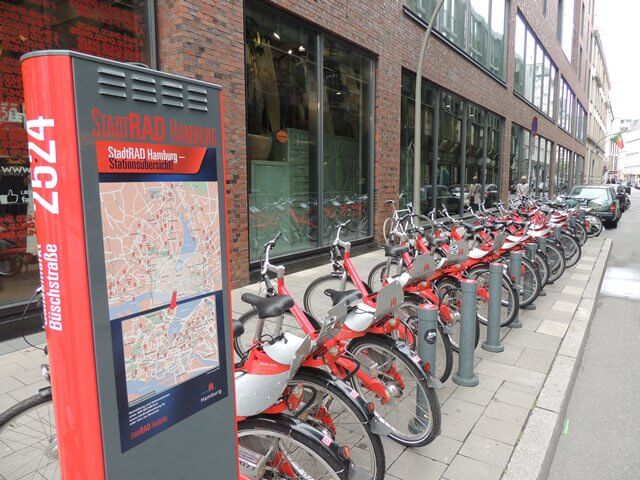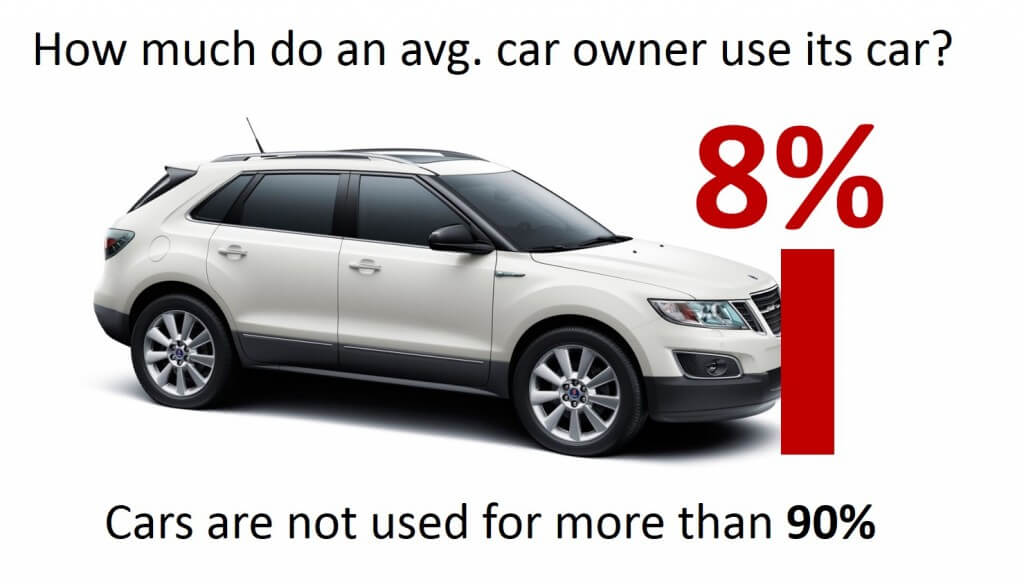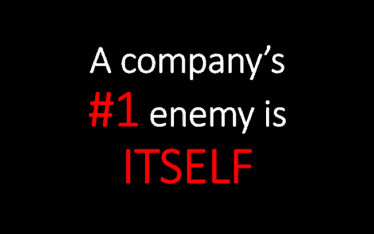Would you trust a stranger to drive your car, or sleep in your house? Thousands of people say “yes” they would. They’re part of the collaborative consumption movement.
It’s all about using social technologies to do some very old fashioned things like swap, barter, and trade. But it’s on a scale never seen before.
From social lending, peer-to-peer hotels, peer-to-peer task, bike sharing and car sharing, people are swapping their cars, homes, even clothes with each other.
Collaborative consumption gives people the benefits of ownership with reduced personal burden and cost and also lower environmental impact and it’s proving to be a compelling alternative to traditional forms of buying and ownership.
Have you ever purchased an expensive tool or piece of equipment that you never use? Have you ever needed to use something that you wish you had?
The problem: Many households own power drills, but most of them are used for only very little during their lifetime.
The solution: Zilok offers peer-to-peer daily rental of tools, camcorders and other goods.
The advocates of collaborative consumption claim that the rapid rise of sharing and swapping represents a social change that is as profound as the industrial revolution. While the industrial revolution marked the beginning of mass production and ownership, collaborative consumption is slowing down the rate of production and consumption by creating new ways to get access to things without proclaiming exclusive ownership.
In many areas we are slowly moving away from ownership toward sharing resources. The big question is whether collaborative consumerism will disrupt “traditional” business models?
Below a handful of the hottest ideas from around the globe.
Collaborative consumption #1 – Books and Media
- Swap – Swap marketplace for almost everything – books, movies, music, games etc.
- BookMooch – Lets you swap books you no longer need in exchange for books you really want
- Paperback Swap – Trade paperback books for free
Collaborative consumption #2 – Bicycles
Many cities around the world, including London, Hamburg, Paris, Montreal and New York, have installed innovative bike-sharing programs that offer a great advantage for those who prefer to check the city by biking than by driving.
Collaborative consumption #3 – Car sharing
A car used to be the ultimate symbol of freedom and independence but increasingly consumers view ownership as an expense and a burden. Car Sharing is becoming increasingly popular with its promise of personal convenience and social improvement.
Frost & Sullivan, a market-research firm, estimates that by 2016 the market will be worth $6 billion a year, half of that in America, with a total of some 10m users. Outside America, most of the growth is in Britain and other north European countries such as Germany (The Economis).
Rental agencies ask consumers to travel long distances to a centralized hub, stand in line, fill out paperwork, pay only by the day or week, and shell out for insurance, gas, and often mileage charges. They give you the keys to whatever generic car happens to be available that day. Zipcar, meanwhile, charges £59.50 (London) a year for a basic membership but makes it easy to make an online reservation for a specific car parked in your neighborhood.
- GoGet – Australia
- City Car Club – United Kingdom
Collaborative consumption #4 – Car sharing – car makers
Car sharing may be great for the consumer and the environment, but automakers have to be worried:
People’s driving patterns and buying habits are going to change, particularly young people. There are a number of new competitors and new business models; we need to be mindful of them and look for ways to take advantage of them (GM Vice Chairman Stephen Girsky).
The future of transportation will be a blend of things like Zipcar, public transportation, and private car ownership. Not only do I not fear that, but I think it’s a great opportunity for us to participate in the changing nature of car ownership (Ford’s executive chairman Bill Ford).
The freedom of mobility that my great-grandfather brought to people is being threatened (Ford’s executive chairman Bill Ford at a TED conference).
Several auto makers, anxious that a growing number of consumers would rather borrow cars than own them, are wading into the nascent car-sharing business:
Collaborative consumption #5 – Car sharing – peer-to-peer
Car-sharing service that owns no cars:
- Drivemycar Rentals – Australia
- Tamyca, Nachbarschaftsauto – Germany
- Buzzcar – France
- Getaround, RelayRides – US
Collaborative consumption #6 – Car sharing – ride sharing
Long-distance travelers as well as commuters are connecting on sites like:
- Sidecar – The service allows people seeking a ride to use a smartphone app to find someone willing to give them one in their own car. Similar services: Avego, Carpooling, goCarShare, Jayride, Liftshare, Zimride, Nuride.
Collaborative consumption #7 – Couch
Couch surfing isn’t just a means of accommodation, it is an entirely new way to travel. You get to see the world through local residents, not hotel concierges or guidebooks: CouchSurfing. Similar services: Tripping.
Collaborative consumption #8 – Fashion
- Borrow designer bags, watches and jewelry: Bag Borrow & Steal, Fashionhire
- Swap fashion: SwapStyle
Collaborative consumption #9 – Gardens
- Landshare brings together people who have a passion for home-grown food, connecting those who have land to share with those who need land for cultivating food.
Collaborative consumption #11 – House/apartment
- Sites like HomeExchange and AirBnb allow users to trade their homes with someone else’s for a vacation period. It’s a one-to-one deal and you save money by avoiding accommodation costs, although you may have to pay membership fees.
Collaborative consumption #12 – Neighborhood & friends rental
- Frents brings neighborhoods together and facilitates collaborative consumption locally among people in your neighborhood. This can be be sharing of equipment, food, transportation, yard or handy work or pretty much anything you can think of.
- WHY own it enables you to borrow products from friends
Collaborative consumption #13 – Office space
- Have unoccupied desks or office space? Kodesk allows you to rent the extra space out to others that wouldn’t necessarily spring for an entire office. Kodesk has peer to peer office sharing across many counties.
Collaborative consumption #14 – Parking spots
- ParkAtMyHouse – Provides affordable and fine-free parking by enabling property-owners to rent out their empty driveways, garages, and car parks to drivers needing somewhere to park. Similar services: ParkCirca, Park On My Drive, SpotHero.
Collaborative consumption #15 – Social Lending
- Zopa is a marketplace for peer-to-peer lending. People lend and borrow money with each other, sidestepping the banks. There are now more than 35 similar peer-to-peer lenders set up around the world: Prosper, The Lending Club.
Collaborative consumption #16 – Travel information
- Vayable provides collaborative consumption of unique travel information and experiences. Have skills, information, tours, or the ability to provide a horseback riding or canoe trip? Make extra money by becoming a tour guide in your own city. Share you knowledge with other travelers. Those traveling to another city or country can enjoy amazing experiences provided by locals.
Collaborative consumption will disrupt traditional business models
Social Media is “enabling” trust between strangers and this helps remove middle-man in exchange process. As a result, collaborative consumption will disrupt traditional business models. Companies will have to reinvent themselves leveraging collaborative technology to connect with their customers and giving them “access” to products or services, rather than “selling” them products or services.
Short URL & title:
Top 15+ disruptive business models based on collaborative consumption — http://www.torbenrick.eu/t/r/ppu
Share it:
If you enjoyed this article, please take 5 seconds to share it on your social network. Thanks!












About The Author
Torben Rick
Experienced senior executive, both at a strategic and operational level, with strong track record in developing, driving and managing business improvement, development and change management. International experience from management positions in Denmark, Germany, Switzerland and United Kingdom